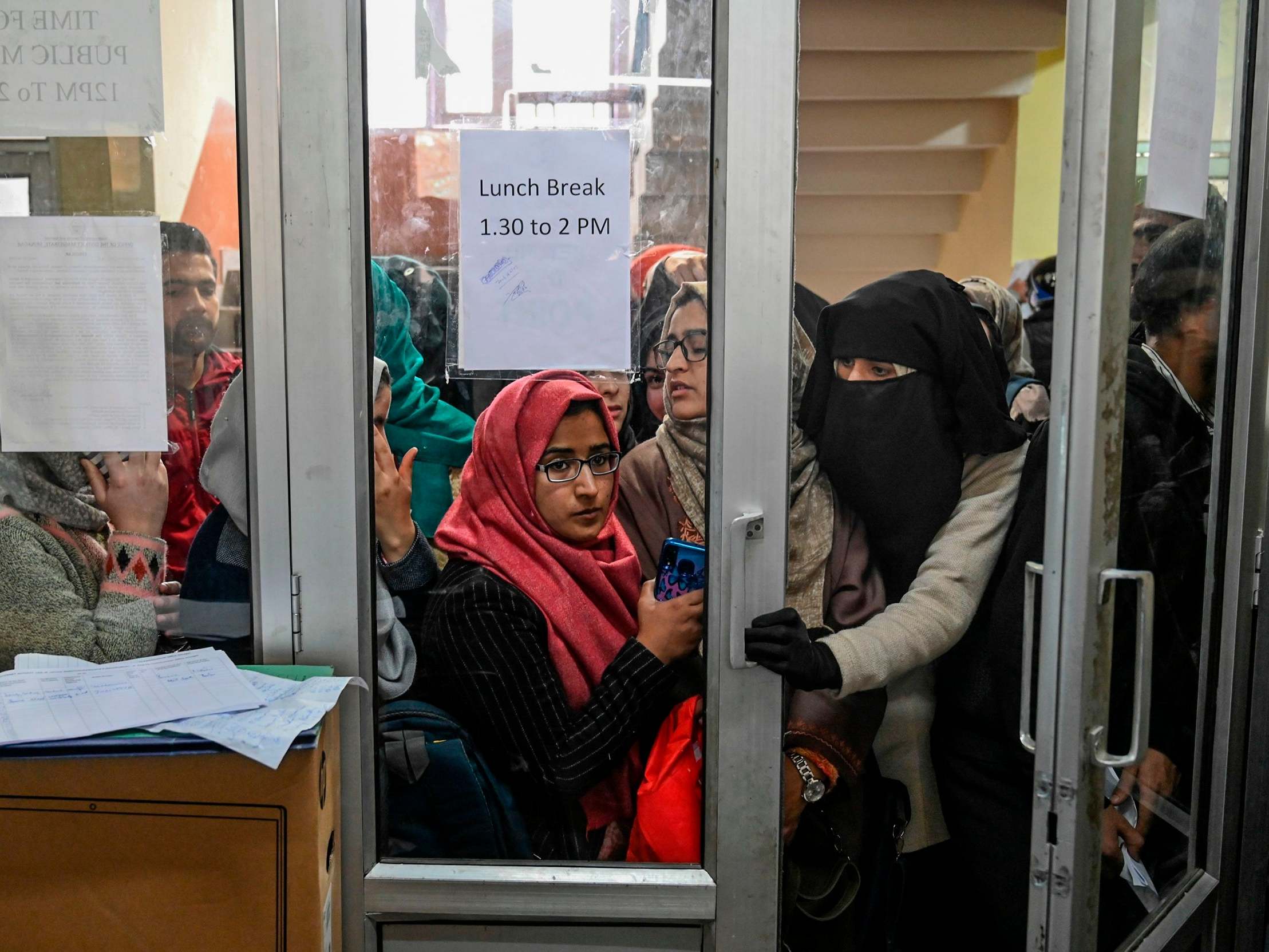Kashmir’s internet shutdown is putting lives at risk during the pandemic
It’s been a year since the Indian government revoked the special status of the region. Adam Withnall reveals the impact of its isolation during a global health crisis


Wednesday marks exactly one year since the Indian government revoked the special constitutional status of Kashmir, splitting the state up into multiple smaller state-controlled territories and placing key local politicians under house arrest.
The 5 August political move was accompanied by a complete shutdown of means of communication in Muslim-majority areas, and while some of this has been restored there is still no access in much of the region to faster 4G mobile data – the principle way people get on the internet.
Media coverage of the situation in the erstwhile Jammu and Kashmir state has been stifled, and not just by the internet shutdown that initially forced local journalists to revert to old-fashioned printed one-page newsletters to reach their readers.
No foreign journalist has been permitted to travel to Srinagar, the largest city in Kashmir, for more than a year. Requests for permission to report on the area are not explicitly rejected, but rather allowed to disappear into the ether of Indian bureaucracy.
Local journalists face constant obstruction and intimidation from the security forces and local police, with reporters called in for questioning for recording the eye witness statements, on camera, of those alleging abuses by those same forces.
The internet shutdown and the stranglehold placed on media deny Kashmiris of all political views a voice. In an otherwise enlightening online discussion on digital freedoms to mark the 5 August anniversary on Tuesday evening, organised by non-governmental organisations, there was not a single panel member from within Muslim-majority Kashmir itself. It simply wouldn’t be possible for them to take part on a 2G connection.
A year-long effective blackout of the internet would be unthinkable in most parts of the world and at the best of times, but is particularly damaging during a pandemic. Doctors in Kashmir have spoken about being unable to access the latest of our rapidly-evolving understanding of the coronavirus, and virtual GP appointments are out of the question.
But beyond that, the whole planet-wide phenomenon of working from home, of family Zoom calls, of maintaining a virtual social life has passed Kashmir by. In the valley there have been no video calls, and there is no work that can be done online.
Today we will hear more from Kashmir, from the people affected by a lockdown on top of a shutdown, even as the authorities impose yet another curfew to prevent people marking the anniversary with protests.
The Indian government said it revoked Kashmir’s autonomy precisely in order to bring it equality with the rest of the country. If that’s really the aim, then it could make a start today by restoring 4G internet and giving Kashmiris the same access to the online world as their 1.3 billion compatriots.
Yours,
Adam Withnall
Asia editor
Join our commenting forum
Join thought-provoking conversations, follow other Independent readers and see their replies
Comments